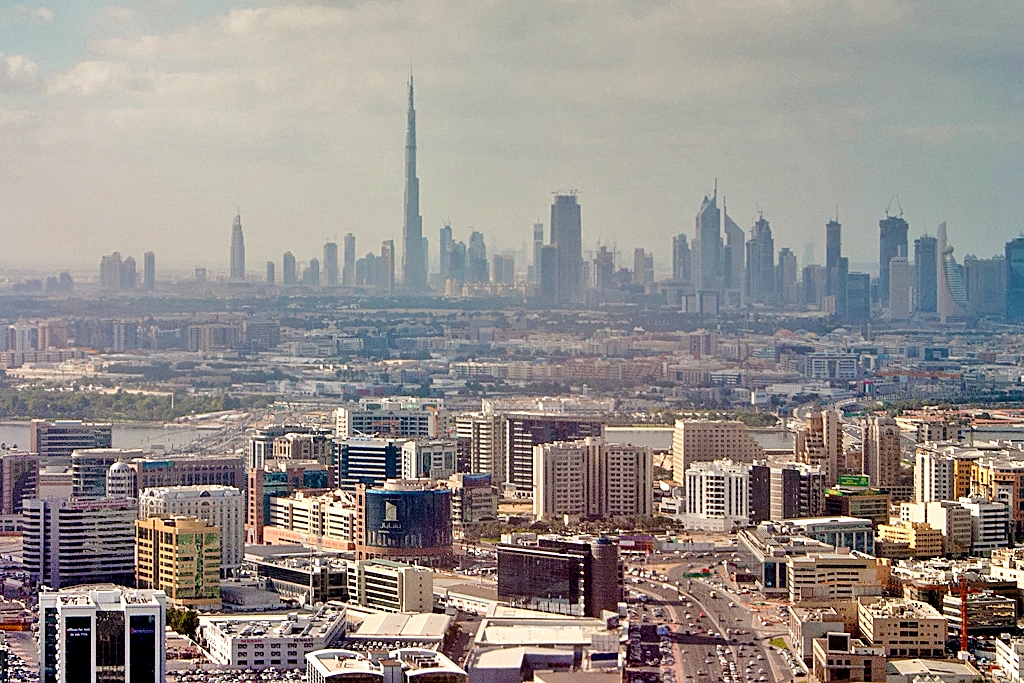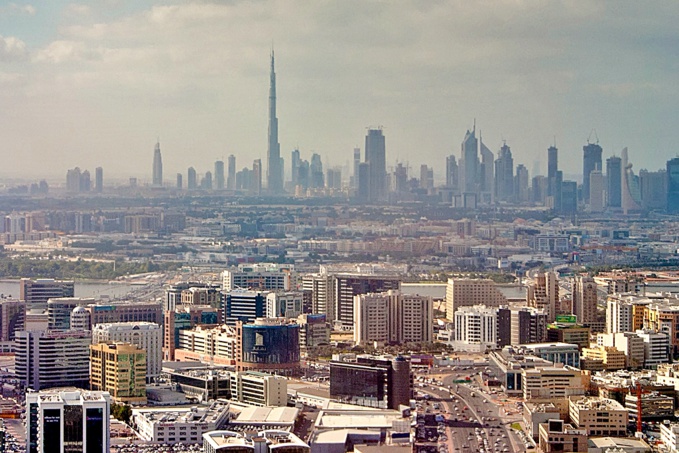Blockchain is best known for bitcoin, the virtual currency, but it can be used in many other ways, too. The technology implies recording and exchanging information about transactions in a chain of digital blocks. The records are not centralized, stored on different computers and verified by all network members.
The Dubai authorities aim to carry out most of the operations connected with state structures with the blockchain’s help, which is supposed to increase their efficiency and help to attract business to the city. "We want the government of Dubai to be the first in the world to use blockchain by 2020", says Aisha Bin Bishr of the department of Smart Dubai. "This will destroy the current systems, but it will help us prepare for the future".
Blockchain is not yet widely spread in commercial activities, but many large companies are already testing the technology. It has attracted the most attention in the financial sector, and now interest in it is growing, for example in such areas as supply chain management and healthcare. In the future, blockchain can accelerate transactions and help in the fight against fraud and money laundering.
However, a number of issues related to the use of technology is still unanswered. The first is cybersecurity. The technology’s supporters insist on its security, but it has not yet been tested, and hacker attacks on digital currencies in recent years have ignited fears. The second is uncertainty in the regulation sphere. It will be necessary to change the world’s legal norms in order to adapt them to growing popularity of the blockchain. In addition, transition to the new technology will require high costs, and there are many technical problems with integration of blockchain databases into existing systems.
Despite all this, increasingly more organizations are fascinating of blockchain’s benefits, and Dubai is going to be the first city to support the technology at the government level.
Several important organizations in the city are already using the new technology.
Any company that wants to work in the emirate usually first deals with the Ministry of Economic Cooperation. Its role is to help create companies in Dubai, issue commercial licenses, protect the rights of business and consumers, develop entrepreneurship and trade. The Ministry is already working to transfer registration of companies and license-related services to the blockchain. "We want to transfer the existing information to the blockchain and create a new informational system", said Mohammed Shael Al Saadi, who is in charge of the corporate strategy at the ministry. "This data will be made available to other local organizations, which will reduce informational duplication, simplify and accelerate the process of creating a business in Dubai".
Another blockchain supporter is the largest Dubai bank, Emirates NBD. In February, the organization announced cooperation with IBM and some local organizations to study use of the technology in logistics and trade. The latter is Dubai's main business, which, with the help of its ports, has become an important export-import center connecting Asian markets with other continents. The volume of non-oil international trade in the emirate was about $ 348 billion in 2016. "The goal is to replace paper contracts with smart ones, which will help reduce complex documentation for tracking and transporting goods", said Ali Sajwani of Emirates NBD.
"Our goal is very clear - to make Dubai the capital of blockchain technology", says Aisha Bin Bishr. "By 2020, all state services and transactions that are suitable for this purpose will take place with the help of the blockchain technology."
source: wsj.com
The Dubai authorities aim to carry out most of the operations connected with state structures with the blockchain’s help, which is supposed to increase their efficiency and help to attract business to the city. "We want the government of Dubai to be the first in the world to use blockchain by 2020", says Aisha Bin Bishr of the department of Smart Dubai. "This will destroy the current systems, but it will help us prepare for the future".
Blockchain is not yet widely spread in commercial activities, but many large companies are already testing the technology. It has attracted the most attention in the financial sector, and now interest in it is growing, for example in such areas as supply chain management and healthcare. In the future, blockchain can accelerate transactions and help in the fight against fraud and money laundering.
However, a number of issues related to the use of technology is still unanswered. The first is cybersecurity. The technology’s supporters insist on its security, but it has not yet been tested, and hacker attacks on digital currencies in recent years have ignited fears. The second is uncertainty in the regulation sphere. It will be necessary to change the world’s legal norms in order to adapt them to growing popularity of the blockchain. In addition, transition to the new technology will require high costs, and there are many technical problems with integration of blockchain databases into existing systems.
Despite all this, increasingly more organizations are fascinating of blockchain’s benefits, and Dubai is going to be the first city to support the technology at the government level.
Several important organizations in the city are already using the new technology.
Any company that wants to work in the emirate usually first deals with the Ministry of Economic Cooperation. Its role is to help create companies in Dubai, issue commercial licenses, protect the rights of business and consumers, develop entrepreneurship and trade. The Ministry is already working to transfer registration of companies and license-related services to the blockchain. "We want to transfer the existing information to the blockchain and create a new informational system", said Mohammed Shael Al Saadi, who is in charge of the corporate strategy at the ministry. "This data will be made available to other local organizations, which will reduce informational duplication, simplify and accelerate the process of creating a business in Dubai".
Another blockchain supporter is the largest Dubai bank, Emirates NBD. In February, the organization announced cooperation with IBM and some local organizations to study use of the technology in logistics and trade. The latter is Dubai's main business, which, with the help of its ports, has become an important export-import center connecting Asian markets with other continents. The volume of non-oil international trade in the emirate was about $ 348 billion in 2016. "The goal is to replace paper contracts with smart ones, which will help reduce complex documentation for tracking and transporting goods", said Ali Sajwani of Emirates NBD.
"Our goal is very clear - to make Dubai the capital of blockchain technology", says Aisha Bin Bishr. "By 2020, all state services and transactions that are suitable for this purpose will take place with the help of the blockchain technology."
source: wsj.com



















